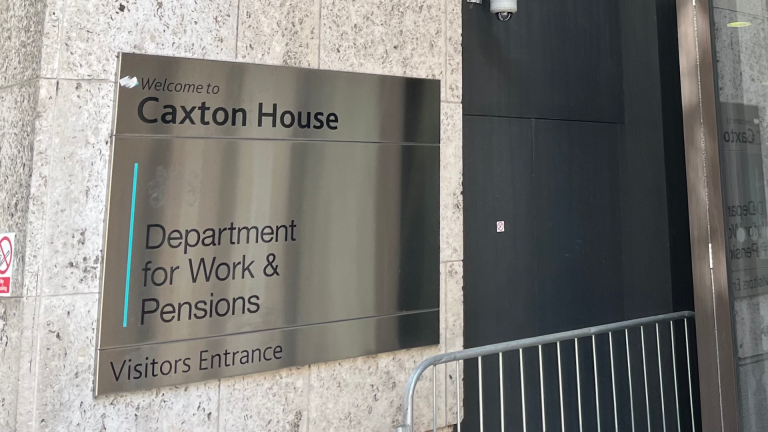“Thanks to AI, we can now read and automatically identify the most vulnerable people, out of the 25,000 letters the DWP receives every day in just a few hours, connecting them to the human who can help more quickly,” Stride said.
“We do this day after day with technology that never tires and that massively outperforms human beings.”
In Jobcentres, an AI tool known as ‘a-cubed’ will trawl thousands of pieces of guidance to give work coaches information on the best support to help a benefit claimant into work quicker, a task which the DWP claims can otherwise take hours.
Claire Atchia McMaster, director of income and external affairs at the anti-poverty charity Turn2us, said: “The government wants to use AI for managing welfare services, but many people already don’t trust how the DWP uses AI. Relying more on AI could make people even more skeptical unless there are clear rules about how decisions are made, people checking the AI’s work, and a way to fix mistakes.
“The way the government talks about welfare reform should focus on understanding why some people need help. It’s important to remember that people who can’t work because of illness are dealing with real challenges and they need welfare support.”
The Big Issue has previously reported on the risks of using AI to improve efficiency within the welfare system.
Advertising helps fund Big Issue’s mission to end poverty
Steve Kuncewicz, a lawyer specialising in data protection at solicitors Glaisyers, explained there could be significant human impact if the government rolled out AI in the welfare system too quickly and at scale.
“The risk is benefit payments not being made against the cost of living crisis in relation to some incredibly vulnerable people,” he said. “That risk could be really, really significant.”
“We’re talking about the ability of benefit claimants to feed and heat themselves,” Kuncewicz added. “Whenever we look at data protection and privacy issues over the course of the last few years, a lot of it has been around Facebook tracking you or Google ads. This is way more fundamental.”
Politicians are aware of the risks of AI – government departments have published their own research on the topic, warning of algorithmic biases. A lack of human contact could create further problems for vulnerable people attempting to access financial help.
This latest announcement comes as part of a series of government proposals around welfare reform, intended to boost the number of British people in work.
“I want to use the power of welfare reform to uncover the treasure that is the hidden talent in our country,” Mel Stride said, adding that he wants to “unleash Britain’s army of talent”.
Advertising helps fund Big Issue’s mission to end poverty
It follows tighter visa rules for overseas workers, such as the ban on care workers bringing over family dependants. A drop in migration has meant recruitment challenges for various sectors.
The DWP is giving a £34m boost to the Department for Education to run “skills boot camps”, which will continue to train unemployed people and help them into industries such as care, hospitality, construction and logistics.
“My message is to the British people,” Stride said. “For too long, we have relied on labour from abroad, and there is a huge talent pool right here. I am going to put that right.”
The work and pensions secretary once again referred to the rising levels of long-term sickness in the UK and his plans to increase conditionality and tighten the welfare system.
Stride said there is “nothing compassionate about the lost potential of people on benefits who could work but choose not to” and “unemployment support should be a safety net but never a lifestyle choice”.
McMaster said: “The way the government talks about welfare reform should focus on understanding why some people need help. It’s important to remember that people who can’t work because of illness are dealing with real challenges and they need welfare support.
Advertising helps fund Big Issue’s mission to end poverty
“If the government really wants to help people into fulfilling, sustainable jobs they need to carefully create policies with input from the people most affected and with lived experience. We need a system that truly understands and respects everyone’s different abilities and situations.
“Government policies need to be made by having real conversations with communities and the people who use and rely on these services. The system should work well for everyone and support them when they need it the most. We should aim for a system that works well for everyone, showing our duty to build a community that supports and includes everyone.”
The DWP’s rhetoric has been repeatedly criticised by campaigners. Ken Butler, the welfare rights and policy advisor at Disability Rights UK, said: “The ramping up of ‘benefit scrounger’ rhetoric and the blame shaming of the ‘economically inactive’ by the work and pensions secretary must stop.
“Disabled people do not claim benefits as a ‘lifestyle choice’ – the fact that seven in 10 of those referred to food banks are disabled people evidences this.
“Barriers to to us accessing employment begin with no support in school leading to poorer outcomes, a higher rate of social exclusion and abuse, and a punitive social security system which sanctions and demonises disabled people rather than supports them into work.
“The attack on disabled people’s benefits is a clear cost cutting exercise. For the government, the problem being tackled is disabled people, rather than the barriers we face. This assumes that we don’t work when we could – and the way to increase employment levels is to force us into unsafe, unsustainable, and exploitative work.”
Advertising helps fund Big Issue’s mission to end poverty
Helen Barnard, director of policy and research at the Trussell Trust, added: “Disabled people and people facing hardship should be able to fulfil their work ambitions, but this must not come at the expense of already precarious incomes or their physical and mental health – particularly during a prolonged living standards crisis.
“Many disabled people who would like to work face significant barriers, including a lack of tailored, specialist employment support, a shortage of flexible jobs open to people managing health conditions and inaccessible transport.”
The DWP has also announced a WorkWell scheme, designed to help people access tailored local support to help people stay in or return to employment. It will be launched in 15 areas of England, including in Greater Manchester, South Yorkshire and Cornwall, and it will connect people to tailored support.
The latest proposal is for an advertising campaign to connect Jobcentres to employers, as well as a new cross-government taskforce to “unleash the domestic labour supply”.
Barnard said: “We welcome a move to work more closely with employers and introduce WorkWell pilots. But we need more than taskforces and advertising campaigns – we urgently need real action with employers on job design, recruitment and in-work support so more people can move into and sustain work alongside their health conditions and caring needs. And we need investment in person-centred employment support that meets the scale of the challenge.
“We need the UK government to engage with the real employment barriers faced by disabled people and the flaws in the PIP system. If we’re to end the need for food banks in the UK and sustainably reduce social security spending, we must address underlying drivers – not whip away lifelines.”
Advertising helps fund Big Issue’s mission to end poverty
Do you have a story to tell or opinions to share about this? We want to hear from you. Get in touch and tell us more.










